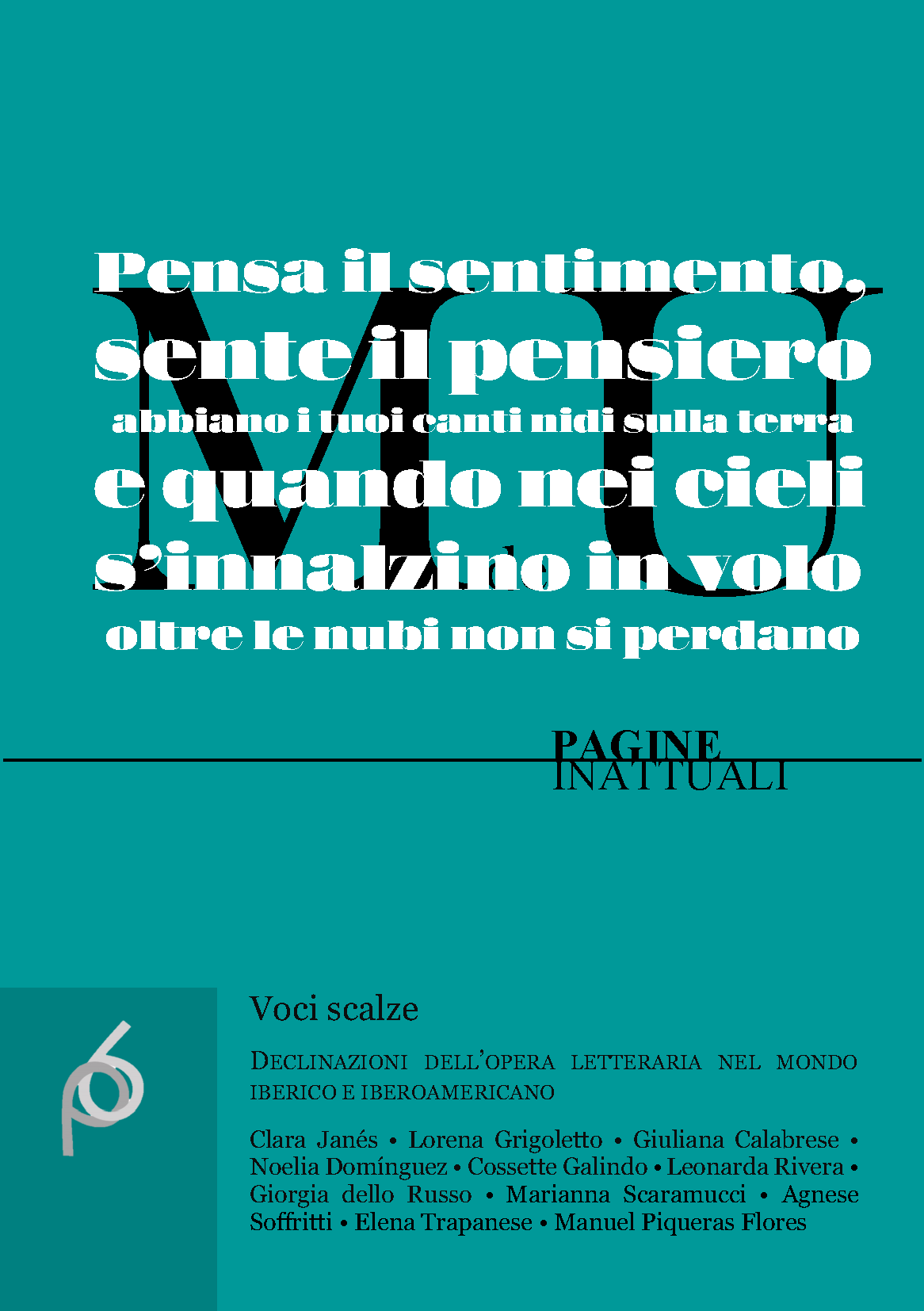Coordinate del soggetto nello spazio testuale: campo letterario e letteratura minore nella poesia transatlantica
Abstract
La poesia recente in lingua spagnola si colloca a metà strada tra le frontiere tracciate dalla critica degli anni Ottanta e il luogo senza limiti che si disegna sull’orizzonte del XXI secolo. Questa immagine di permanenza senza luogo, di “dialettica in sospeso”, per dirla con Benjamin, non impedisce di individuare caratteristiche comuni alle poetiche che convergono nell’uso deterritorializzato e post-nazionale della lingua spagnola e che si basano sul paradigma degli “ispanismi transatlantici” proposti, tra gli altri, da Julio Ortega. Lo scopo di questo lavoro è presentare una serie di scenari poetici attuali in lingua spagnola che dialogano tra le due sponde dell’Atlantico, oscillando allo stesso tempo tra le rivendicazioni del locale e le servitù sempre più inevitabili del globale. Sono allo stesso tempo immaginari poetici “minori”, nei termini di Deleuze e Guattari, che comunicano attraverso confluenze e riflettono società multiculturali dove le diverse soggettività poetiche si dissolvono in voci nomadi, frattali, avatar che vogliono raggiungere un lettore ubiquo. In questa “interattività transatlantica” della poesia odierna, il poeta è allo stesso tempo un artigiano e un critico, una voce che cerca se stessa su Google otto volte al giorno per sapere dove è andato (Andrés Neuman), ma soprattutto il portavoce di un’unica lingua che tuttavia non gli permette di sapere di quale città è nativo o in quale straniero. L'appartenenza a uno spazio poetico ispanico, dotato di molteplici sponde, ci permette tuttavia di mettere in discussione identità radicate e immobili e di abbandonare il paradigma della critica atonale per creare altre condizioni di riconoscimento.
Downloads
Pagine Inattuali è pubblicata ad accesso aperto, per assicurare la più ampia diffusione e circolazione possibile al sapere vagliato dalla comunità scientifica.
Tutto il materiale pubblicato è distribuito con licenza "Creative Commons - Attribuzione" (CC-BY 4.0).
Con la licenza CC-BY, gli autori mantengono il copyright sui loro contributi, garantendo tuttavia a chiunque la possibilità di scaricare, riusare, ristampare e distribuire i materiali pubblicati, con la sola condizione che siano correttamente citati l'autore e la sede di prima pubblicazione.

